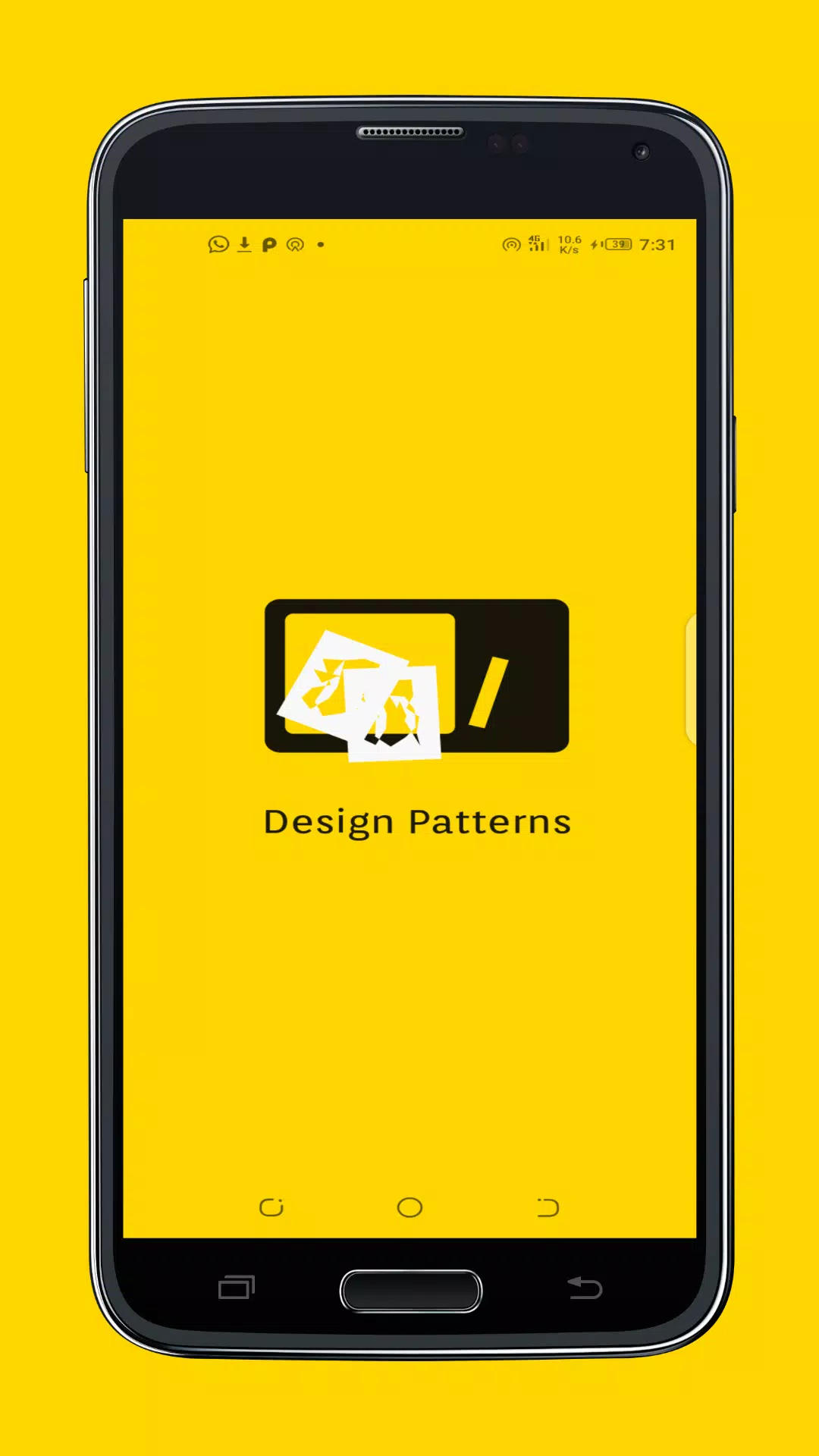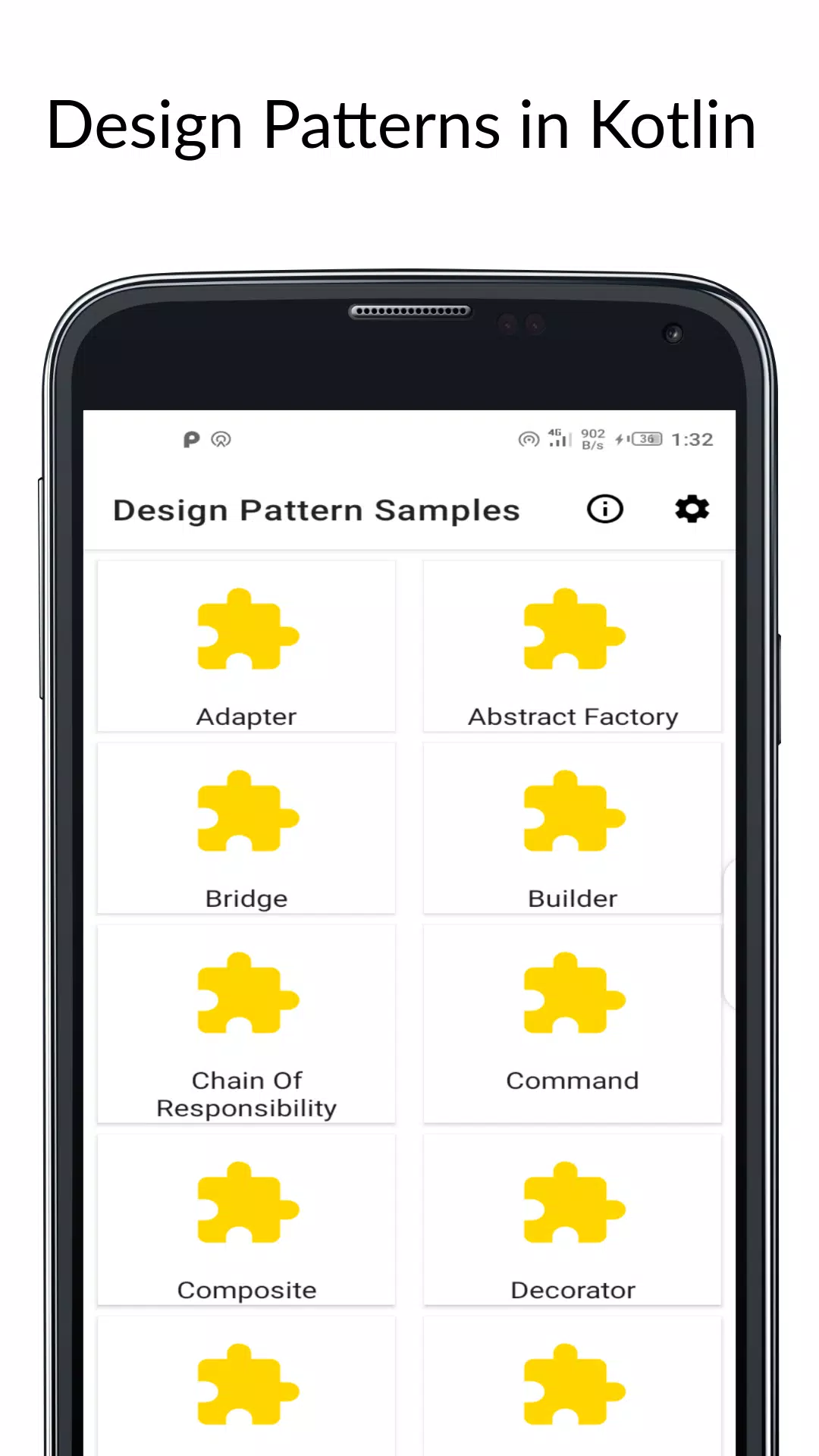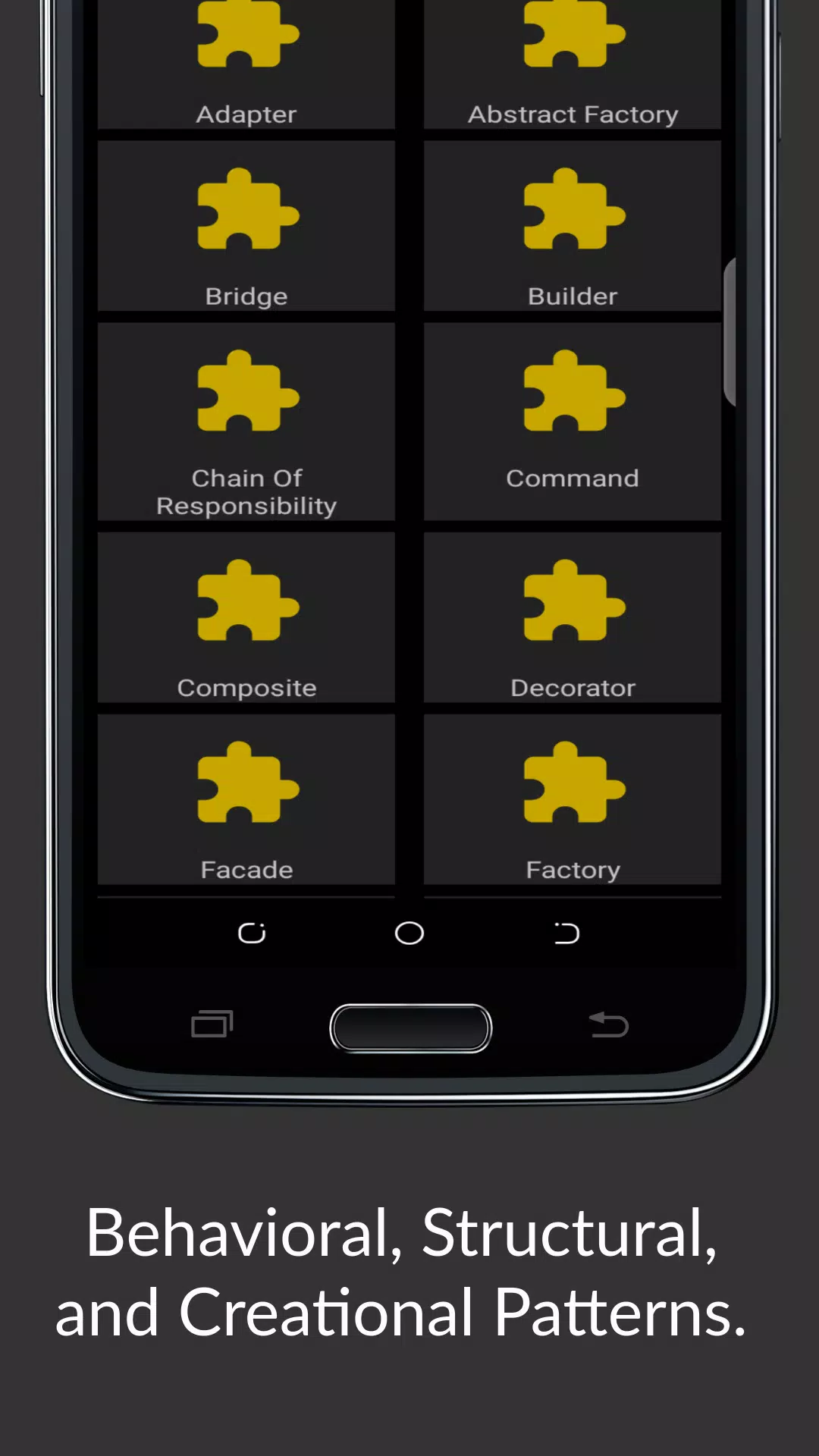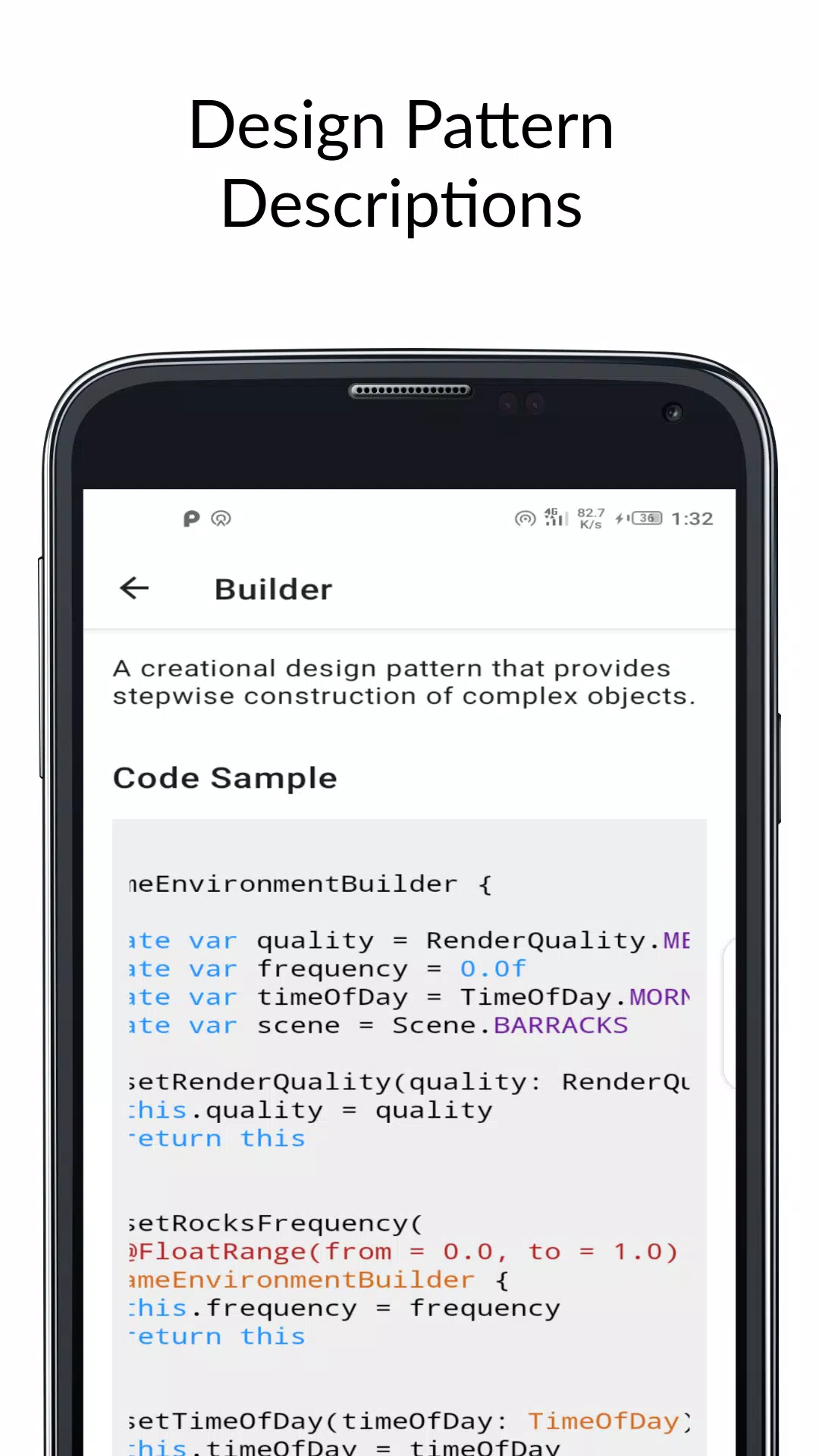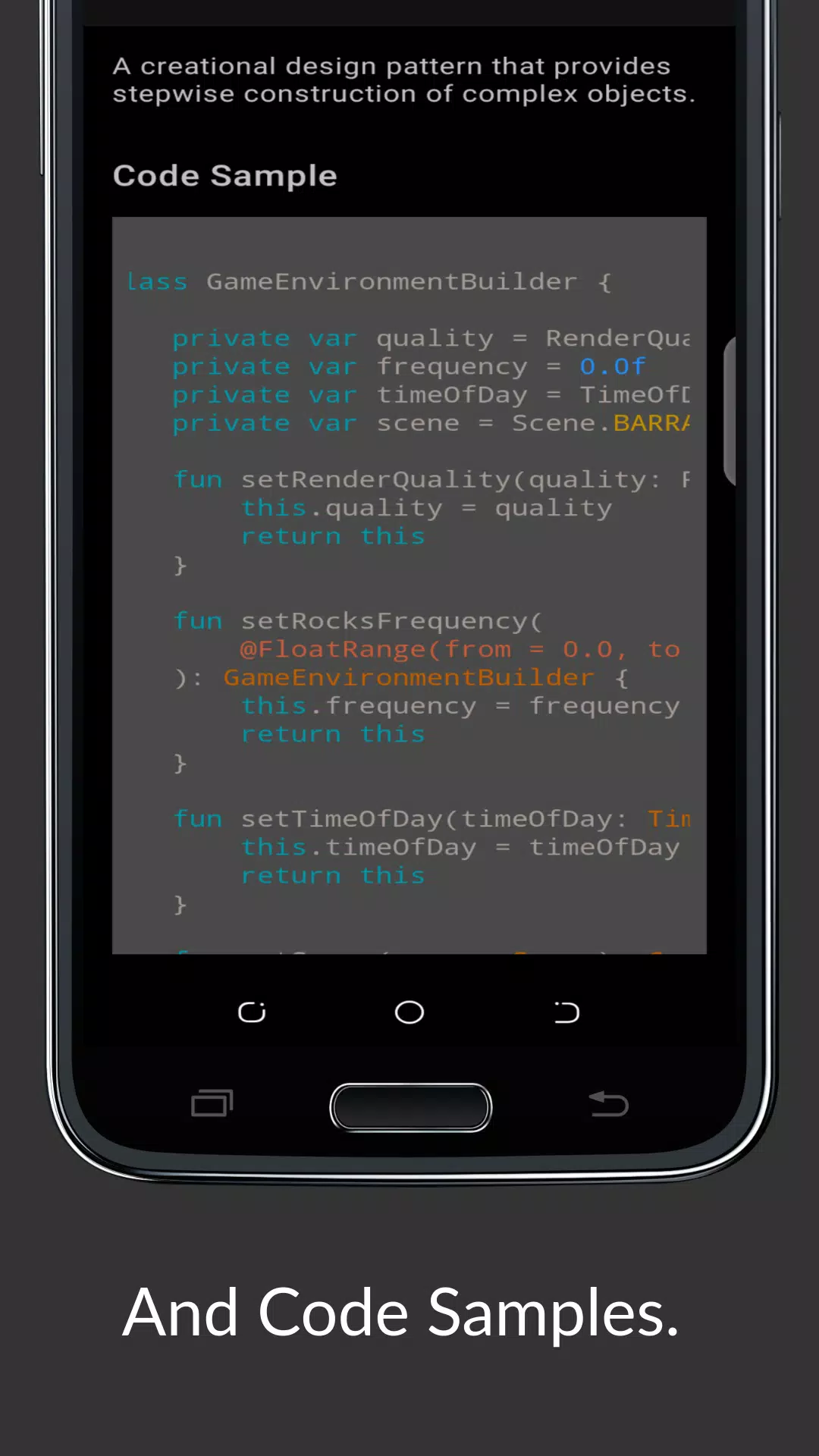Learn Design Patterns with Kot
关于Learn Design Patterns with Kot
Learn Design Patterns with Kot
This application is a comprehensive resource showcasing design pattern samples implemented in Kotlin. It serves as an interactive guide for developers who wish to deepen their understanding of software design principles.
Overview
The Design Samples App offers a plethora of design pattern code samples, complete with detailed descriptions. These samples are meticulously crafted to help you grasp the nuances of various design patterns and how they can be applied in real-world scenarios. Whether you're a beginner or an experienced developer, this app will enhance your knowledge and skills in software architecture.
Code Samples
The app includes a wide range of design pattern examples across three main categories:
Creational Design Patterns
- Abstract Factory: Provides an interface for creating families of related or dependent objects without specifying their concrete classes.
- Factory Method: Defines an interface for creating an object, but lets subclasses decide which class to instantiate.
- Builder: Separates the construction of a complex object from its representation so that the same construction process can create different representations.
- Singleton: Ensures a class has only one instance and provides a global point of access to it.
- Prototype: Specifies the kinds of objects to create using a prototypical instance, and creates new objects by copying this prototype.
Structural Design Patterns
- Adapter: Allows incompatible interfaces to work together by converting the interface of a class into another interface clients expect.
- Bridge: Decouples an abstraction from its implementation so that the two can vary independently.
- Composite: Composes zero-or-more similar objects so that they can be manipulated as one object.
- Decorator: Adds responsibilities to objects dynamically without modifying their structure.
- Facade: Provides a simplified interface to a complex subsystem.
- Flyweight: Minimizes memory usage by sharing as much data as possible with similar objects.
- Proxy: Provides a surrogate or placeholder for another object to control access to it.
Behavioral Design Patterns
- Observer: A subject maintains a list of its dependents, called observers, and notifies them automatically of any state changes.
- Mediator: Defines an object that encapsulates how a set of objects interact.
- Memento: Captures and externalizes an object's internal state without violating encapsulation.
- Command: Encapsulates a request as an object, thereby letting you parameterize clients with different requests.
- Chain of Responsibility: Passes requests along a chain of potential handlers until one of them handles the request.
- Iterator: Provides a way to access the elements of an aggregate object sequentially without exposing its underlying representation.
- State: Allows an object to alter its behavior when its internal state changes.
- Strategy: Defines a family of algorithms, encapsulates each one, and makes them interchangeable.
- Visitor: Represents an operation to be performed on the elements of an object structure.
- Template Method: Defines the skeleton of an algorithm in an operation, deferring some steps to subclasses.
Feedback
We encourage you to explore these samples and share your feedback with us. Your insights will help us improve and expand the content, making it even more valuable for everyone.
Thanks for checking out the "Learn Design Patterns with Kot" app!

